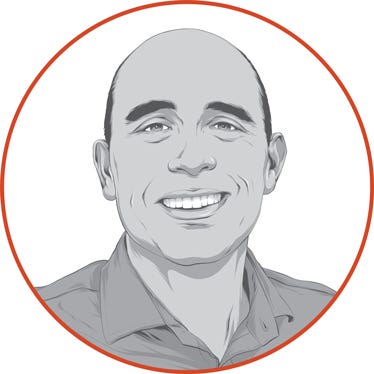
Burt and Reed are successful, exhausted, happy and stressed out. When the peer group visited their farm the signs of success were everywhere.
Burt and Reed greet their employees by name and it was obvious they spent a lot of time working beside their employees. They like their employees and the employees like them. They hire seasonal employees through a visa program to pick the fruit of their 1,200-acre Michigan orchard and many of these employees come back year after year.
In a tough labor market, they have relatively few labor challenges because they are great hands-on managers.
They have a new office built to handle the expansion as they continuously added more orchard each year.
They have great relations with their neighbors, lenders, and suppliers, too. They have a solid transition plan they are now executing. Their new shop is state-of-the-art and spotless.
Both Burt and Reed have advanced college degrees and are good communicators.
So… what’s the problem?
Burt and Reed are good farmers and so good at creating opportunities, they are choking on their success. Because of this success there was no time for important things in life or business.
They are so busy with the daily chaos (their words not mine) of interruptions, important things are not getting done as they deal with the small but urgent matters employees bring to them. There is no time to focus or plan the next expansion. They can’t imagine any more growth -- because there is no time to imagine it.
Because Burt and Ryan are good, they keep piling on more acres, more employees, and more business deals. They are now up to almost two hundred employees during peak season and yet they manage their farm with the same hands-on approach that their father did before them.
That’s mistake number one.
It’s not uncommon for the management changes to lag behind the growth in production. It’s easier to add more production than it is to change the farm management practices. After all, managing production increases is often a matter of scaling up what already works.
But scaling management practices often means abandoning what has worked in the past.
What is needed are significant changes in how the owners manage, and what they manage.
Less hands-on – not more
As a farm grows production, the principals need to have less of a hands-on approach, not more. We have found the right solution is finding the right people to create a buffer between the owners and employees. This buffer is great at ensuring the principals only deal with the most important things.
After getting feedback from the peer group, Burt and Ryan decided to make the following changes.
Manage fewer employees. They need to manage fewer employees; instead they will manage team leads. These team leads will create a buffer and free up their time from interruptions. The team leads will have broad authority on how they tackle the issues of the day, including working through employee questions.
Hire operations experts. They decided to off-load the agronomy, human resources and maintenance management by hiring people to manage these key areas. These employees will have broad discretion to hire, make improvement recommendations, and purchase recommendations to Burt and Reed, who will have the final say.
Manage fewer outside relationships. They decided their banker, the marketing advisor, landlords, processing manager and their accountant are the main off-farm relatiohships they will manage. The chemical saleman, tool salesman, fuel company and equipment company relationships will be passed to the operations experts.
Best selling author and business management expert Marshall Goldsmith says it best: “What got you here won’t get you there.”
There will always be urgent items that will rob you of time that you need to think and plan at the executive level. This is true on large farms and small farms alike.
Scaling up the management of a farm is not about creating a multiple of what you are already doing. The answer often lies in simple subtraction.
What got Burt here won’t get Burt there and that’s OK. With a little subtraction Burt will end up with more by focusing on what’s truly important.
The opinions of the author are not necessarily those of Farm Futures or Farm Progress.
About the Author(s)
You May Also Like






